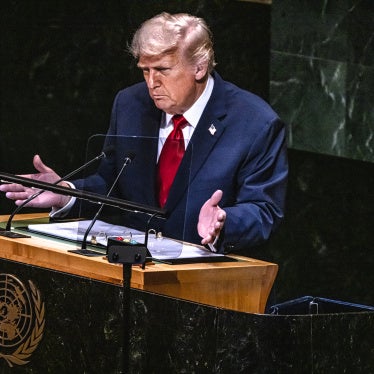Last week, United Nations member states began negotiating a first-ever treaty on international tax cooperation that could replace the current patchwork system that deprives governments of billions in revenue and undermines their capacity to deliver on human rights.
The treaty process was initiated in 2022 by African countries, which face particularly consequential losses under the current tax system yet lack fair representation in international economic decision-making. One hundred and ten countries voted in favor of the Terms of Reference last August, reflecting broad support for changing a system that is costing governments nearly half a trillion dollars annually in tax abuse and avoidance, according to Tax Justice Network.
Currently there are few measures to prevent or deter multinational corporations and wealthy individuals shifting profits and assets to tax havens, leading to a huge loss for public revenue and fueling inequality. The absence of a global treaty also makes it harder to tackle complex tax problems like cross-border services and illicit financial flows.
Equitable global tax rules are critical to supporting “human rights economies” by aligning domestic and international economic decision-making with the realization of human rights. Human rights law obligates governments to use maximum available resources, including through international cooperation, to fulfil economic, social, and cultural rights, such as to health, education, and social security. Tax cooperation is central to meeting this obligation by raising revenues to fund these rights and to reducing inequality within and between countries.
The Terms of Reference established a committee to draft a framework convention and two protocols by 2027, including one on cross-border services in the digital economy.
On the first day of negotiations, the United States said it opposed the treaty and left the room. Negotiations continued. The African group urged for the second protocol to address illicit financial flows but ultimately agreed to a proposal, favored by European countries, for it to cover preventing and resolving tax disputes.
The tougher fight was over decision-making rules: Some countries, led by the European Union, wanted decisions only by consensus, which would effectively give every delegation a veto. Others, led by the African group, sought a simple majority vote if consensus could not be reached – common for framework conventions. They ultimately agreed on a simple majority vote for the framework convention and two-thirds voting requirement for the substance of the protocols.
Even if the road to get there is paved with disputes, and it will be, this week brought us a step closer to international tax rules that could benefit human rights in all countries.









